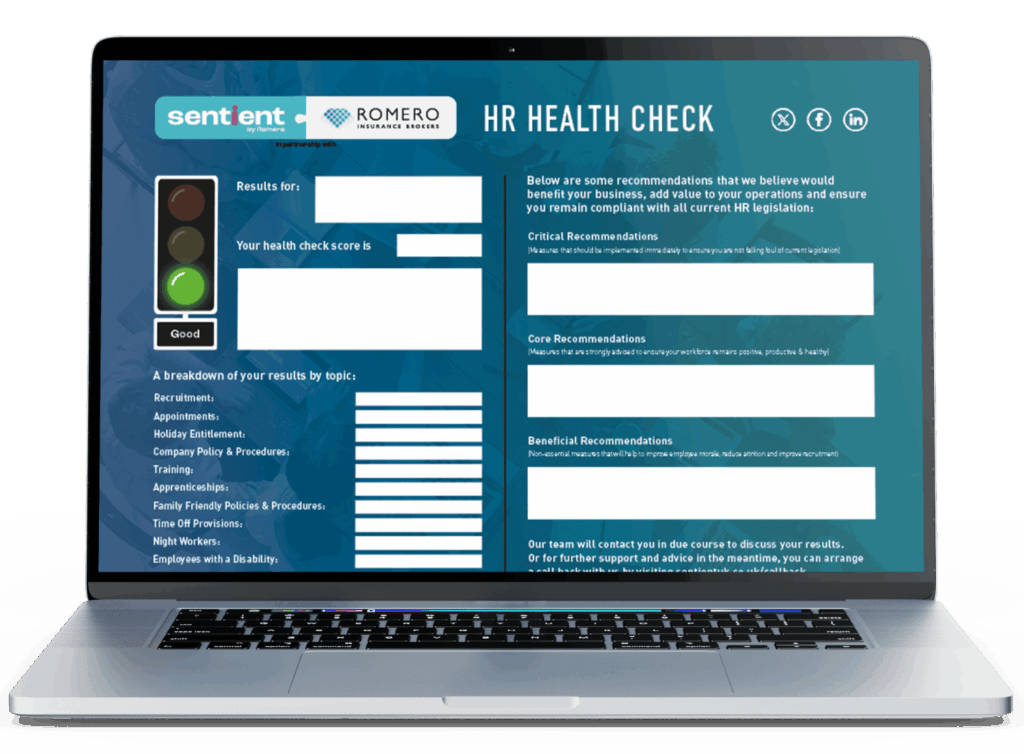Flexible Working Arrangements – This is 6th of 9 amendments made by the 2025 Employment Rights Bill
New rights affords to employees concerning flexible working arrangements
The Employment Rights Bill has received a list of recent amendments. From zero hour contracts to confidentiality clauses, many aspects of employment and payment conditions are expected to change. Employers need to fully understand the regulatory changes to their obligations to members of staff, and as to not breach employment law.
New measures included in the Employment Rights Bill aims to support access to flexible working. Reasonable and fair requests concerning flexible working arrangements should be accepted by employers from now on.
The Government has recognised the positive impact flexible working has had for the population. Productive employees are happy and healthy, hence flexible working should be beneficial for employers and businesses. By introducing a more well-defined legal framework for flexible working, the intention is that this form of employment becomes more popular and is more likely.
Are there any laws around flexible working currently?
In July 2023, The Employment Relations Act 2023 was passed. This gave employees certain rights around flexible working arrangement requests, and also placed some obligations upon employers.
With the change in 2023, employees are not required to explain the impact working from home would have on the business, and are permitted to make a request upto twice a year.
Employers are mandated by law to consult with employees before refusing any requests, and have a two month window to reply. When a request is rejected, employers should expect or allow for an appeals process. There is however no requirement for employers to formally explain their decision.
What are the new lawful changes?
The new changes revolve around day-one requests. Amendments allow employees to ask their employer for a flexible working arrangement from their first day on the job.
Also employers must give a formal reason as to why the flexible working request was rejected – drawing on one of the eight legitimate business reasons, listed by the government and Acas’s flexible working request outcome template. Employers must consult with employees, following a specific process. Employers will be expected to accept any flexible working request which is feasible and reasonable.

What are the 8 legitimate reasons employers can refuse a flexible working application?
The legitimate business reasons why a flexible working request can be rejected includes:
- The business incurring extra costs as a result that could harm the business
- Losing work which can’t be reorganised or reassigned
- No one is available to cover the time lost
- Evidence that a flexible working arrangement would negatively affect quality or standards
- Evidence that a flexible working arrangement would negatively affect performance or productivity
- Detrimental affect on the ability to meet customer demand
- Unbalanced workload, such as a lack of work during requested flexible hours
- Structural changes, such as if the business is going through a restructure
These are the formal reasons why a business could reject and employees flexible working proposal. Many concern the impact on the business, and it shows a legislative priority toward the continuity and welfare of the business. Whether its quality, performance, workloads or restructures; it’s important the business isn’t impacted by the flexible working.
There are many illegitimate reasons that a business may use as an excuse to reject a proposal. The following reasons have been deemed ‘unreasonable’.
- Management’s opinions on flexible working shouldn’t not impact the permission.
- It’s not in the business’s culture or it’s new to the business.
- Any reason related to protected characteristics, as this could be found to be discrimination.
The employer’s reason for rejection needs to be formally submitted after a meeting with the employee, and a dispute or appeal should be expected.
What are the types of flexible working arrangements?
There are a few different types of flexible working arrangements which need to be considered by employers.
Staggered Hours – operating at different start and finish times to other employees. Such as an hour earlier or later.
Remote working – working away from the office, such as in hireable work spaces. It most often concerns working from home, in a home office.
Hybrid Working – Mixing working remotely and working in the workspace
Part-time Hours – Some employees may request to work part-time, sacrificing their hours and perhaps pay to work less hours to suit their lifestyle.
Flexitime – Flexible start and finish times, that would need to be within agreed limits and with calculated timescales.
What steps should employers take to reduce the likelihood of breaching their obligations?
Employers should consult with HR outsourcing businesses, such as Sentient, to create a unique tailored flexible working policy. Sentient will help businesses update their procedures, contacts and future documents, as well as conduct assessments in order to streamline the process for submitting and reviewing flexible working requests.
Employers will need to review the upcoming rules around flexible working reasonable rejections. Consultations will need to be offered and carefully considered, with meeting structure advice and documentation available from Sentient. Any measure to manage a risk should be considered, reviewed and possible implemented.
Learn more about Employment Law
There are 9 key areas of Employment Law that have been affected by the 2025 Employment Rights Bill.
Each of these areas are critical and will need to be addressed by employers. Employers need to understand their obligations and be careful not to unduly act in any way which could be observed as discriminatory. Employers will need to update their documentation and contracts that directly relate to the changes
To read more about your lawful obligations, Romero Insurance have refined and condensed the Government’s published information into a helpful whitepaper document. The Employment Law Whitepaper by Romero Insurance layout what employers and business leaders need to know about employment law.
Let us review your Employment Risk and Documentation

Contact us to take the HR health check. A HR health check will review your processes and documentation, and provide tailored guidance. The Health Check is conducted by our partners at Sentient, who are a HR outsourcing service and health and safety experts.
Our partners at Sentient will come back to you within 5 working days with a detailed overview of how you can improve your HR function and support your team. This free health check will grade your current practices with a traffic light system, showing the robustness of your HR procedures. Sentient is available for any business of any size who want to update their policies and procedures in time for Employment Law regulation changes

